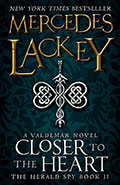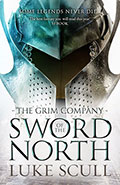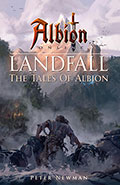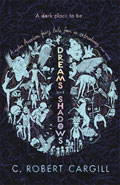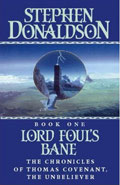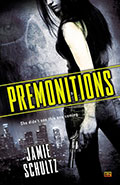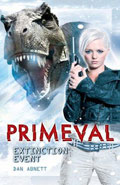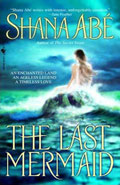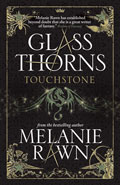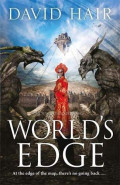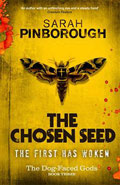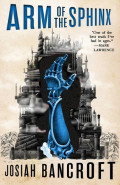Guns of the Dawn
By Adrian Tchaikovsky
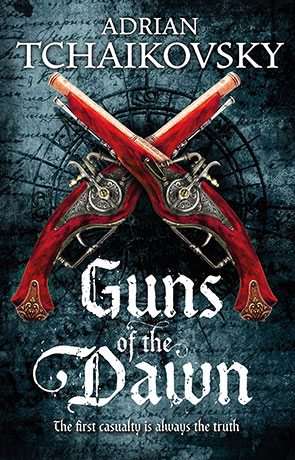
- Guns of the Dawn
-
Author: Adrian Tchaikovsky
-
Publisher: Tor Books
- ISBN: 978-1447272670
- Published: February 2015
- Pages: 700
- Format reviewed: Hardback
- Review date: 18/03/2015
- Language: English
- Age Range: 15-
Stories by Adrian Tchaikovsky are always sober, meticulous and carefully constructed. Guns of the Dawn is no exception, an unusual novel, set in a fantasy world inspired by the late 19th and early 20th century and the clash of progress therein. Our protagonist, one Emily Marshwic, struggles to maintain her family's noble position in the absence of a patriarch and in the midst of the kingdom of Lascanne’s terrible war against Denland.
The story begins with Emily knee deep in her first tour as a conscript to the king’s army and in itself flatters to deceive. Here we have the makings of a fantasy which discards gender tradition; women and men fighting in the same army, occupying all ranks, and even being allowed to be skilled or unskilled dependent on their character.
It was a little disappointing to come to chapter 2 and find this flash forward to an action packed nirvana to be a different direction to the one the novel chooses to take. However, Tchaikovsky's intentions are more subtle and no less thought-provoking. We are returned to Emily's previous life, learning of the events that led her to become a soldier. We watch as the Marshwic household is gradually eroded, a microcosm to the way in which the country Lascanne is being eroded by the war. The allegory is clear, the First World War and families coming to terms with the absence of their loved ones who may never return or, sometimes worse, come back broken beyond repair.
Tchaikovsky paints a picture of related reality in this fantasy. There’s an air of Melvyn Bragg’s The Hired Man in the descriptions of the town of Chalcester as it gradually slips into neglect and despair. Emily's father committed suicide, her mother died in childbirth, yet her family name is noble and her lands remain to give her privilege and position. Her viewpoint on others is judgemental and class-based, making it not the easiest to empathise with in modern times, but the writing reveals the pathetic rituals of society for their cathartic intention, and relates these to us. Who hasn't tried to push away their worldly cares for a moment by dressing up and going to a party?
The scope of the story gradually expands and returns us to the present of the beginning and from here, the disappointment from earlier is quickly purged. Emily’s place in the army is challenged through a series of situations – by the enemy, by gender prejudice and by the agendas of others. Tchiakovsky’s writing subtly shifts in tone. The Austenlike echo of the scenes has gradually faded as our main character’s perception of the world changes. At some points this part of the book does feel a little like adapted episodes of Cornwell’s, Sharpe, but there is always a wider perspective and the fragility of the Lascan position in the swamps of the Levant is a continual danger. The characters swirling around Emily all parade their flaws, from the chief scout who wants to go native, to the deluded Colonel in charge, to captain fast and captain slow and the master sergeant who used to be an actress. It is here that the love triangle establishes itself, but the story never wallows in its angst, but balances it against the happenings of the marshland war. You never sense the main characters are secure and despite the moniker of ‘The Survivors Club’ over the heads of Emily’s closest friends, each is continually aware of just how perilous their situation is.
The end is full of further surprises, without revealing it, the return to life in Lascanne measures just how far Emily has come and changed. There’s a Chekov or two in place that allows for some needed reflection of character change and some resolving of the wider plot. This is very cleverly built and handled. The ending is also well placed, leaving you to speculate on what may now happen to Denland and Lascanne.
Guns of the Dawn is a story of gravitas, that uses its fantasy premise to hold a mirror to our past. By the end, reflections on the Industrial Age and the best and worst of the early part of the twentieth century abound. Behind the words of the characters you can sense the excesses of real history, which makes the choices of each character hold tremendous importance. This brings these decisions back to us as readers, seeing the past of our grandparents and great grandparents as if it were new, but knowing the ramifications behind might occur. Definitely a thought provoking read.
Written on 18th March 2015 by Allen Stroud .
